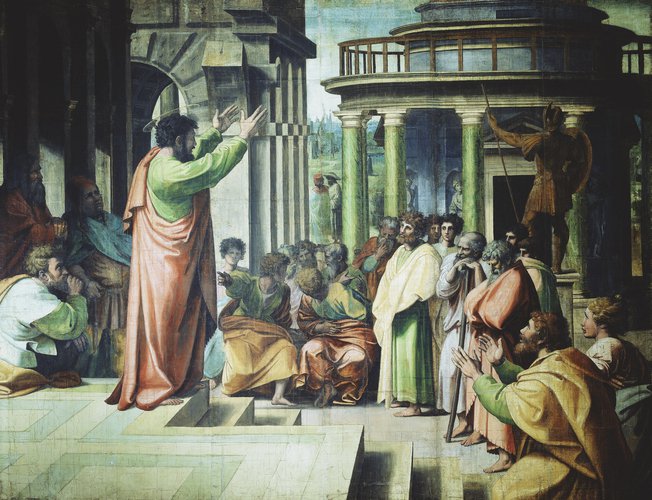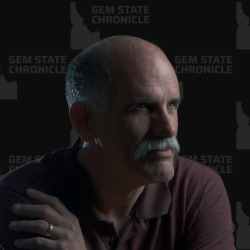We all live in bubbles of some sort, surrounded by likeminded people. If you’re reading this, then you’re in a bubble of people who are plugged into politics, which makes it easy to forget that most people exist outside this world.
Most of us live in bubbles within bubbles, groups of people with similar political and religious views who are all nevertheless engaged in the same fight. With campus protests flaring up throughout the country in response to the war in Gaza, Christians who believe there’s a biblical mandate to support the nation of Israel have been outspoken on social media. The House of Representatives passed a bill regarding the definition of anti-Semitism last week which only amplified the already contentious rhetoric.
Something I noticed about this discourse is that many Christians who support Israel are unaware that this is actually a minority position within the Christian church in general, and a recent one at that. I’ve encountered many who simply assume this is something all Christians believe. This isn’t the place to go into that particular belief, rather I it is an example of why we should be careful not to excommunicate people from our movement based on differing interpretations of Scripture.
There is nothing wrong with disagreement, of course. We must be able to firmly articulate our own positions and explain why they are correct. Disagreement should be in good faith, however. The Main Street Caucus claims to want to “disagree better” but they still call conservatives “extremists” and often use other disingenuous arguments. Am I saying the same thing today? No, what I mean is that we must address the best argument on the other side, which means taking it seriously.
It’s easy to create a strawman of your opponent and then demolish it with your facts and logic. It’s harder to build a “steelman” which better represents their positions. Maybe your opponent is not actually a Nazi, a Communist, or some other form of extremist. Maybe they came to their positions by a logical route from the same source. Maybe you have entirely different worldviews — great, let’s explore that rather than calling names.
Believe it or not, different people can interpret writings and events differently. Christians have been arguing over biblical interpretation for two millennia, and Jews for even longer. Americans have disagreed about the meaning of the Declaration of Independence and the Constitution from the very beginning. Republicans in Idaho interpret our party platform differently as well.
These debates are vital, because in addition to convincing voters and other observers as to why our side is correct, they give us an opportunity to learn as well. Maybe we missed something, or maybe we’re just plain wrong. It’s possible!
It’s also important to understand your opponents’ beliefs rather than dismissing them. If you were asked to debate in favor of something you disagreed with, could you theoretically do it? If not, then how can you hope to defeat those ideas?
The way to disagree better is to take your opponents’ views seriously, understand their positions, and continually check your own positions against reality, without compromising your foundational principles.
Acts 17:22-31 might be my favorite passage of Scripture. I believe that Western Civilization was built on the twin pillars of Greek empiricism and revelation of God to the Jews, and it was at this moment that the two became one. The Apostle Paul visited Athens, walking the same streets that Socrates, Plato, and Aristotle once trod. He stood in the midst of the city and preached the gospel in a way the Greeks could understand:
So Paul, standing in the midst of the Areopagus, said: “Men of Athens, I perceive that in every way you are very religious. For as I passed along and observed the objects of your worship, I found also an altar with this inscription: ‘To the unknown god.’ What therefore you worship as unknown, this I proclaim to you. The God who made the world and everything in it, being Lord of heaven and earth, does not live in temples made by man, nor is he served by human hands, as though he needed anything, since he himself gives to all mankind life and breath and everything. And he made from one man every nation of mankind to live on all the face of the earth, having determined allotted periods and the boundaries of their dwelling place, that they should seek God, and perhaps feel their way toward him and find him. Yet he is actually not far from each one of us, for
‘In him we live and move and have our being’;
as even some of your own poets have said,
‘For we are indeed his offspring.’
Being then God’s offspring, we ought not to think that the divine being is like gold or silver or stone, an image formed by the art and imagination of man. The times of ignorance God overlooked, but now he commands all people everywhere to repent, because he has fixed a day on which he will judge the world in righteousness by a man whom he has appointed; and of this he has given assurance to all by raising him from the dead.”
Acts 17:22-31 ESV
Paul met the Athenians where they were. He didn’t mock or ridicule them for believing in pagan gods or engaging in endless philosophical debates, rather he used their own beliefs and writings as evidence for the truth of the gospel. He understood his audience and took their beliefs seriously. He knew their myths, their poems, and their history, and he used that knowledge to support his argument rather than ignoring it.
Note that Paul did not compromise his message. He did not sell the gospel short; he did not diminish the person and work of Jesus Christ. He maintained the integrity of the gospel even while translating it into words that his audience could understand. In short, he broke out of his bubble and carried the gospel to people who needed to hear it.
Bubbles are safe, but they can make us forget that other people believe differently than we do. Breaking out of those bubbles and learning how other people think is not a betrayal of our principles, rather it is a necessary step in winning the war of ideas.
About Brian Almon
Brian Almon is the Editor of the Gem State Chronicle. He also serves as Chairman of the District 14 Republican Party and is a trustee of the Eagle Public Library Board. He lives with his wife and five children in Eagle.












